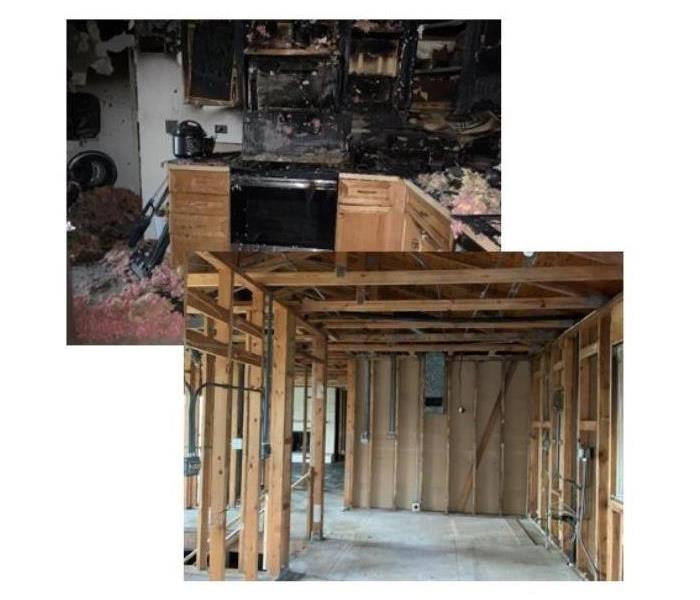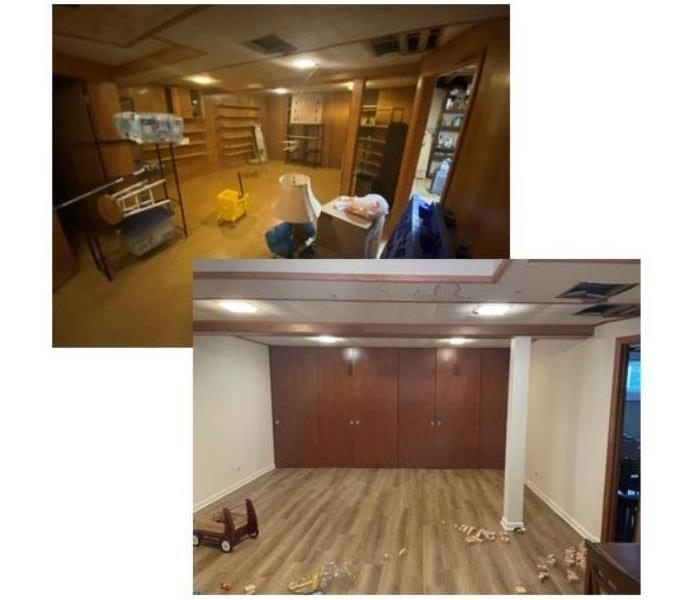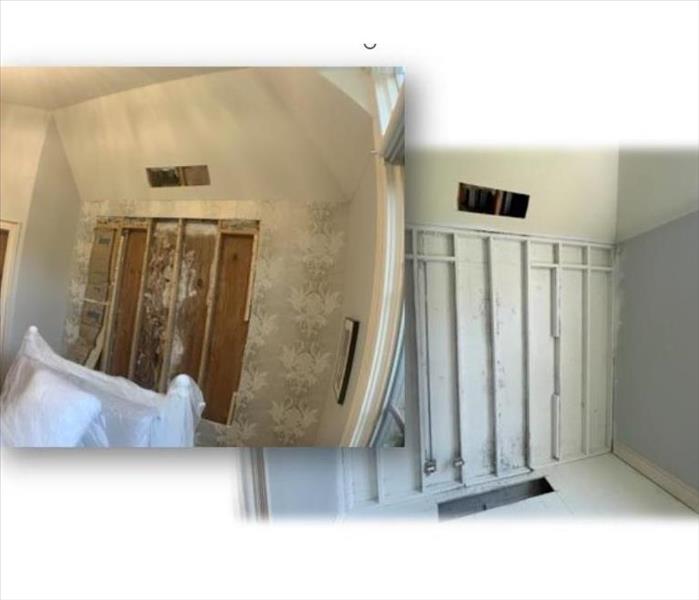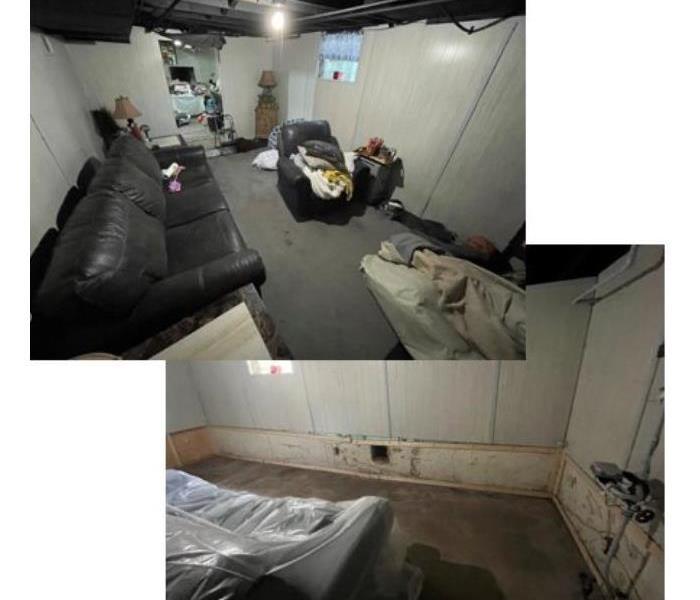Recent Posts
Unlocking Your Full Potential!
11/27/2023 (Permalink)
Sending managers for additional training at SERVPRO HQ is a strategic investment in enhancing leadership capabilities and ensuring the continued success of an organization. By providing managers with specialized training programs, SERVPRO can equip them with the latest industry insights, leadership techniques, and problem-solving skills. This proactive approach not only strengthens the managerial skill set but also fosters a culture of continuous learning within the corporate environment. Additionally, training sessions offer a valuable opportunity for managers to network, share best practices, and gain fresh perspectives that can positively impact their decision-making processes. Overall, investing in ongoing training for our managers is a forward-thinking strategy that aligns with the ever-evolving demands of the business, contributing to improved efficiency, employee satisfaction, and organizational resilience.
A Morning at Feed My Starving Children
11/27/2023 (Permalink)
 Our Production Crew spending a morning at Feed My Starving Children!
Our Production Crew spending a morning at Feed My Starving Children!
This morning, our dedicated team at SERVPRO embodied the spirit of community and compassion by spending valuable hours volunteering at Feed My Starving Children. With sleeves rolled up and hearts full of purpose, our employees worked tirelessly to pack nutritious meals destined for children in need around the globe. The experience was not just about giving back; it was a testament to our company's commitment to social responsibility and making a positive impact. As we assembled meal packages and shared smiles, we not only nourished hungry children but also strengthened the bonds within our team. This endeavor reinforces our belief that corporate responsibility extends far beyond business, and we are proud to contribute to creating a world where no child goes to bed hungry.
Stepping away from the hustle of business to immerse oneself in community service is a powerful reminder of our shared humanity. In those moments of giving, we not only contribute to the betterment of society but also recharge our own sense of purpose. It's a testament to the idea that success isn't just measured in profits but in the positive impact we make on the lives of others. As we invest time in community service, we not only build stronger, more resilient communities but also foster a corporate culture that values empathy, kindness, and a broader sense of responsibility.
Fire Damage and Restoration
10/30/2023 (Permalink)
Having an event that causes fire damage in your home can be devastating, and with so many things to get in order, it is easy to become overwhelmed and not know where to start. Make sure you start off on the right path by calling SERVPRO for fire damage and restoration! From the first call to our office team, to the final walk through with the project manager, you can ensure every detail has been accounted for- including document restoration, contents cleaning, and pack out assistance.
When the project manager gets on site, their priority is determining if the home is still a safe environment for you to live in, or if we need to help to coordinate alternative living arrangements with your insurance provider. We will help you comb through important items, keep sakes, and other valuables to give you the confidence that everything will be taken care of.
Unfortunately, with fire losses, there is most likely to be water damage as well if the fire department was called to put out any existing fires. This causes there to be 2 separate portions of the remediation, but luckily our SERVPRO teams are trained and certified in both! After all of the contents have been packed out, inventoried, and stored in our climate-controlled warehouse, the highly trained SERVPRO technicians begin to remove all the affected materials, cleaning step by step along the way, and ensuring there is no fire damaged materials left behind- even down to the studs and framing.
After all of the affected materials have been removed, and all areas have been cleaned and sanitized, the SERVPRO crew members will place ozone machines to run for a few days to deodorize the affected rooms and remove and smoke odor that lingers in the home. Because of how powerful these machines are, no household members or SERVPRO crew members can be in the home during this process. After this process has been completed, a final walk through will be conducted with the insured to go over all that was done and begin to discuss plans for reconstruction. We will continue to coordinate on-site visits and potential move back dates as the project progresses. For the best results- call the professionals in the Fire Damage and Restoration business- SERVPRO! See below for a glimpse into the before and after process of a fire loss! Call the professionals who are available 24/7/365 days a year!
From Disaster to Restored!
10/27/2023 (Permalink)
From the first call to the last walk through- out our SERVPRO goal is to make water damage claims “Like It Never Even Happened.” When our office receives a call about a utility sink that has flooded a basement, we know to send our highly trained and accredited staff to accurately capture the loss and inform the insured every step of the way.
Immediately once onsite, the SERVPRO crew will begin to map out the water migration and discuss what has been affected, and how we plan to mitigation the affected materials. In this case, the standing water saturated the tile flooring and the paneling on the walls. Our team moved swiftly and effectively to move contents, remove affected materials that could not be dried, and placed adequate air movers and dehumidifiers to reach the drying goal of each material.
Once we have confirmed the water damage portion of the claim is completed, our reconstruction manager will be onsite to conduct his walkthrough and discuss how the insured envisioned this space to look after such a traumatic loss. The insured shared their vision with the team, and soon after that visit the scope was put together, insurance was informed of the process, and contractors were on site for their evaluations.
From start to finish, our team takes pride in constant communication, quality work, and standing behind any final product that we have a hand in creating. For a one stop shop, from mitigation to reconstruction, general cleanings, mold remediation, commercial cleaning services and anything in between- call the leaders in the restoration field! SERVPRO is always here to help- give us a call today! (630) 377-7062
Mold? No Problem!
10/27/2023 (Permalink)
Sometimes water losses and leaks can happen without us knowing, and when these problems go unnoticed it can cause additional damage such as mold growth. When you first see signs of these problems, be sure to call in the professionals for an assessment, report, and expertise advice on how to handle the situation- SERVPRO! Our mold certified technicians will be there when you need us and are only one phone call away.
As soon as our crew is one site for the assessment, they will begin to determine the origin of the moisture that has caused the mold to begin to grow. Based on this finding they can help determine if there are any repairs that are necessary and what the next steps look like. If the mold growth is extensive (over 10 sq ft), we will recommend having a testing company to come out and gather multiple samples of the mold growth to determine the specific type, as well as put together a protocol for remediation to ensure that there no mold growth activity after our remediation is complete.
Some of the standard mold remediation service we perform is containment of the affected area to prevent mold spores from spreading, HEPA cleaning the studs affected, and encapsulating which is the process of using a mold resistant paint to prevent the spreading of the mold- as seen in photos below.
If you have any doubt that there may be mold in your home, whether it be from an odd smell, visible mold growth, bubbling on drywall, paint, or other surfaces- give the experts a call in the mold remediation field for a consultation so that you have peace of mind in your home! Give SERVPRO a call- 247/365 days a year! (630) 377-7062
Helping Outside Our Neighborhood
10/27/2023 (Permalink)
Although we are consistently looking to help those in our neighborhood, we are always looking outside our realm to those who need assistance in drastic times, and out-of-the-norm circumstances. This is where our Storm Team comes in and travels to where you are and help in emergency situations for water damage cleanup.
When SERVPRO first gets word of a storm on its way, our crews immediately activate to check inventory, vehicle status, equipment counts, and are waiting on their toes for the dispatch request to jump into action. No matter the time of day or night- we will be headed your way with all the necessary items to assist in water damage and cleaning claims with our highly trained and efficient storm team crew members.
Our Storm Team is certified in water restoration, structural drying, and commercial cleaning services which will help provide the best outcome in such a challenging time. We will work with your insurance companies to submit claim documents, photos, reports, and keep them updated on the status of the project. With our storm crew and office staff working around the clock, you can ensure you will be in touch with the best in the business! See below a great example of our team identifying damage, removing affected materials and drying out the structure- as our team just returned from Storm Travel in Michigan and Ohio!
Traveling for storm may be a lot of work, but nothing is better than getting to reach customers outside your network, providing services in a challenging time, and knowing you are helping those in need. Storm travel means all hands-on deck, even for those working back in the home territories to continue the day-to-day operations, helping the local customers as well as aiding the storm travel crew to keep them busy and ensuring great communication for all parties. Whether you are local to us or in need of services in a storm situation- call the leaders in the mitigation field! SERVPRO- “Like It Never Even Happened”.
Understanding Storm Damage and Flooding
8/20/2022 (Permalink)
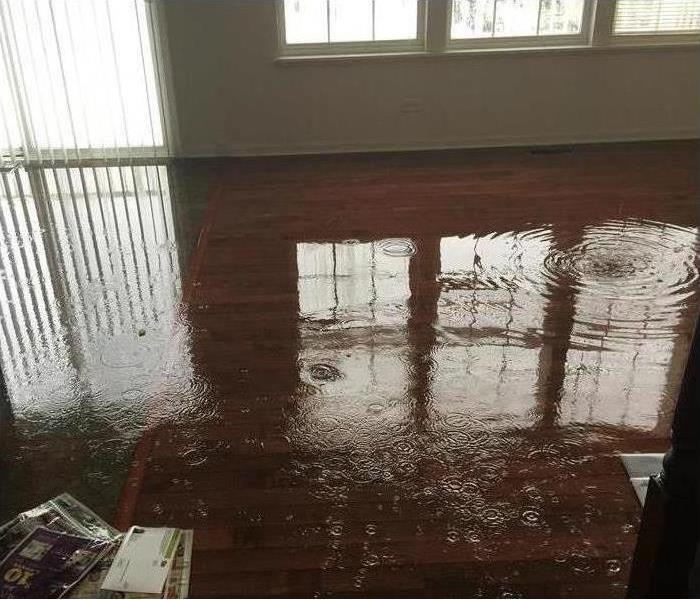 Flood damage in Batavia, IL.
Flood damage in Batavia, IL.
Storm Damage and Flooding
There are many types of emergencies or disasters that could affect your building in Batavia,IL. Water damage is one of the most destructive and concerning. This can happen in several ways, including via Mother Nature and from faulty plumbing in your facility. Both storms and flood damage can wreak havoc on your business. It's important to understand both of these — including their differences.
Storms and How They Can Cause Damage
Storm damage can send water into your building through the roof, the foundation, windows, doorways and other openings. They can also damage siding, windows, roof shingles and items inside your office. Common storms include:
- Thunderstorms with heavy rains
- Hurricanes and tornadoes with high winds
- Hailstorms
Flooding can occur in your facility when torrential rain seeps through a weakened foundation. A damaged roof may not be able to hold in the water either. Hailstones can also break glass or dent siding on the building. Powerful winds can knock over trees onto the building or damage power lines, cutting off electricity.
Floods That Don't Come From Storms
Not all flood damage is a result of the weather. A common way in which floods start in the building is from plumbing issues. A backed-up sewer line can send black water into the office, posing harm to everyone inside. Overflowing toilets can damage flooring and drywall. Also, broken pipes can causes leaks, which gradually damage building materials and develop mold. A bursting pipe can send large amounts of water into the building, threatening personal belongings and office equipment.
Help Is Available
For floods and storms, you need the expertise of a disaster response company. These professionals have the training and equipment to clean up after any damage and restore your building so you can return to work safely.
Flood damage is nothing to take lightly. Either from a storm or plumbing problems, water damage can affect your office.
Can a Property Manager Be Sued for a Mold Claim?
8/15/2022 (Permalink)
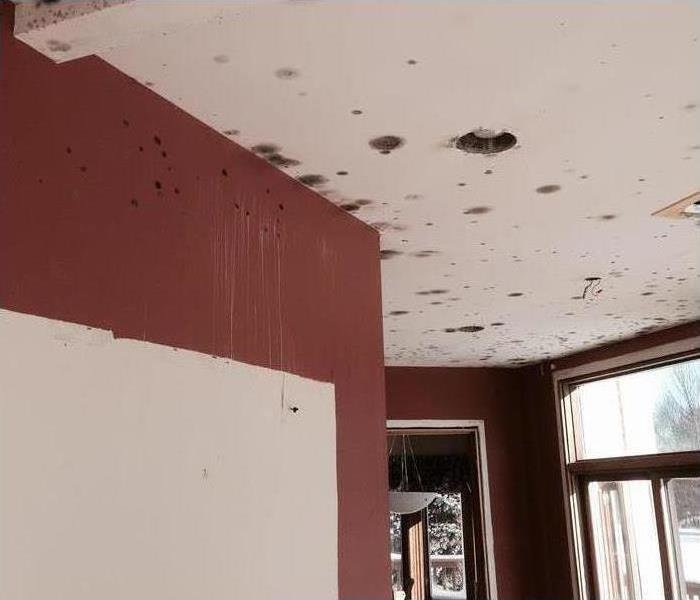 Mold damage in Geneva, IL
Mold damage in Geneva, IL
Mold insurance claims are on the rise. In one major case, a Texas couple was awarded $4 million due to mold damages. Tenants are getting more litigious by the year, so it behooves property managers to know what their responsibilities are regarding mold remediation.What Can Cause a Mold Claim?
A building owner in Geneva, IL, may be responsible for situations leading to property damage in the case of provable negligence. Most mold claims against property managers revolve around three issues:
- Improper building materials
- Improper repair techniques
- Damage caused during repairs
Residential landlords are held to the highest standard and are strictly required to maintain a “habitable” dwelling. Business tenants are not typically held to the same standard since they’re assumed to have a higher level of sophistication and responsibility for their own fate.
Any of these three issues are the property manager’s responsibility, even if you used a contractor to do the work. You may be able to sue the contractor for damages, of course. If the mold damage is the result of a water leak, it may be covered by mold insurance claims, especially if you have a rider for mold.
What Is Your Liability?
For business tenants, your liability is typically described in your contract. However, even if your contract makes your tenants responsible for maintenance, some problems may still be considered your responsibility. Your attorney can help you determine where this sometimes-obscure line is.
How Can You Reduce Your Liability?
Since the building is your asset, you should arrange for a yearly mold inspection by a local mold restoration company. Black mold can eat away at construction materials and even weaken the structure if it’s made of wood. Don’t assume the tenants will care about your building!
You should also review your contract with your attorney. However, the best way to reduce liability and prevent the stress of making mold insurance claims is prevention. If you have a water leak, regardless of the source, get it fixed immediately to avoid future mold damage and claims.
4 Ways to Keep Mold From Spreading In Your Home
7/30/2022 (Permalink)
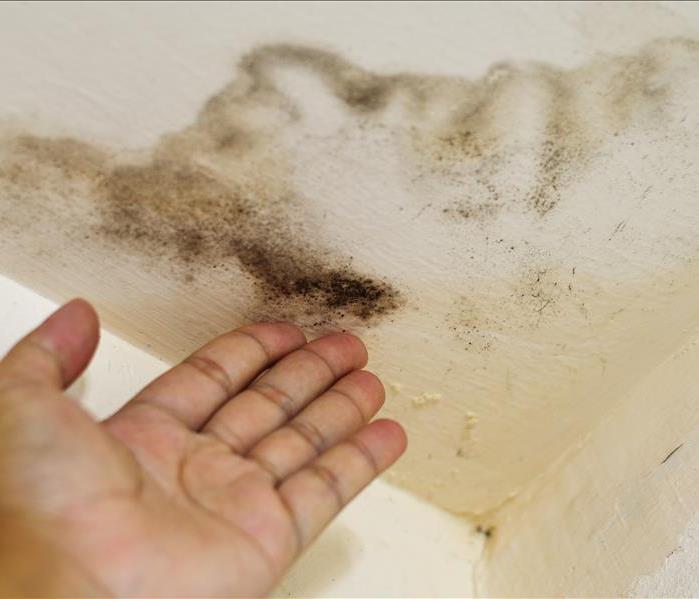 The aftermath of Mold damaging the ceiling after water damage.
The aftermath of Mold damaging the ceiling after water damage.
Four Strategies to Prevent Mold Growth in Your Home
Mold is a common problem for many homeowners, but this fact doesn’t make it any less frustrating. If you have mold growth in your St. Charles, IL, home, there are several things that you can do to help keep it under control.
1. Reduce Moisture
Mold needs moisture to grow. This is why you will often find mold in places with water damage. However, your house doesn’t need to be flooded to enable this growth. Small leaks or high levels of humidity can contribute as well. Fixing damaged pipes or appliances quickly and using dehumidifiers can help prevent mold.
2. Limit Air Circulation
If you already have mold in your home, whether as a result of water damage or something else, movement in the air can spread it further. Limit the use of HVAC systems and fans until you are able to have the mold removed.
3. Clean Regularly
Because mold can grow in any location and you may not know that any spores are present before they have begun to spread, cleaning your home regularly is an important part of mold prevention. This is especially true if you have had mold problems in the past. In areas that mold has grown previously, you are more likely to find future growth.
4. Hire a Professional
Mold can be difficult to remove on your own and can easily be spread if you don’t know what you’re doing, so hiring a mold remediation company to remove it can help keep the problem from returning. They can find all instances of growth in the building and can perform cleanup and any needed repairs.
Even if mold keeps popping up in your house, there is no need to panic. In most instances, it will not cause serious problems. Just be sure to take care of any water damage when it occurs and keep moisture levels low. Recurring mold should be handled by a professional to get the best results.
4 Easy Steps To Flush a Water Heater
7/25/2022 (Permalink)
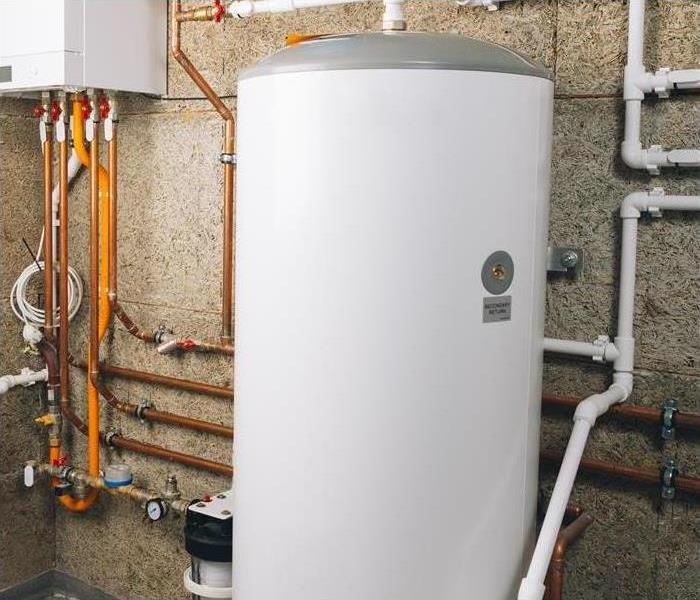 Conduct a water heater flush annually to ensure your water heater is working efficiently.
Conduct a water heater flush annually to ensure your water heater is working efficiently.
How to Flush a Water Heater in Four Simple Steps
Unless you love ice cold showers at your home in Elburn, IL, you depend on your water heater to reliably do its job. This household item requires annual maintenance to keep it working properly, as mineral deposits collect over time and build up inside. A water heater flush may seem like an intimating task because water, electricity and gas are involved. However, the job is less stressful than it first appears. There are 4 easy steps to improve the efficiency and extend the life of this important appliance.
1. Turn Off Power
First, turn the appliance off to avoid the risk of exposing yourself to gas or electrical shock. For gas, turn the knob at the bottom to the “off” position and shut off the valve on the gas pipe. For electric, shut off the power at the circuit breaker box.
2. Prepare
Before you begin flushing, collect a garden hose long enough to lead outside. The alternative is to bring a shorter hose and a large bucket to contain the water. Connect the hose to the drain spigot on your water heater.
3. Drain and Flush
Open the valve to drain the water out of the tank. Run hot water from elsewhere in the house to help it flow. Once the water runs clear, close the valve. Repeat the process if desired.
4. Turn On Water and Power
Turn on the water supply to the appliance with the valve closed. Now, turn the power back on. For gas, turn the knob at the bottom to the “on” position and restart the gas supply. For electric, turn the power on at the circuit box. Remember to turn off the water you left running in the other location. The water should heat up in about 20 minutes.
As a homeowner that loves hot showers in Elburn, IL, conduct a water heater flush on an annual basis to keep your water heater working efficiently. However, if this appliance reaches the end of its life and causes flooding or water damage, contact a water restoration specialist as soon as possible.





 24/7 Emergency Service
24/7 Emergency Service


